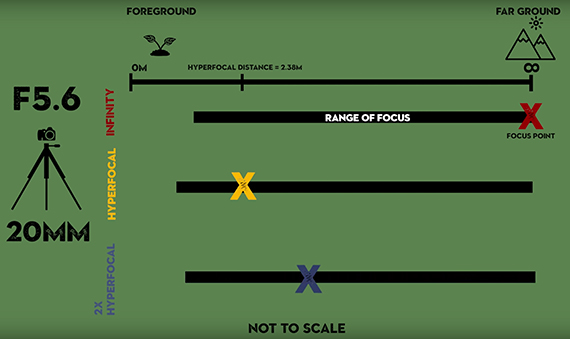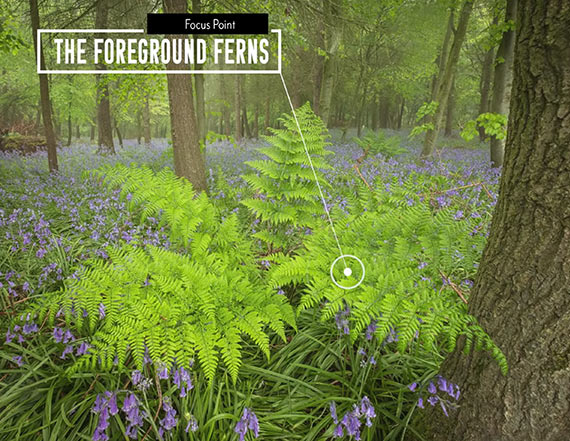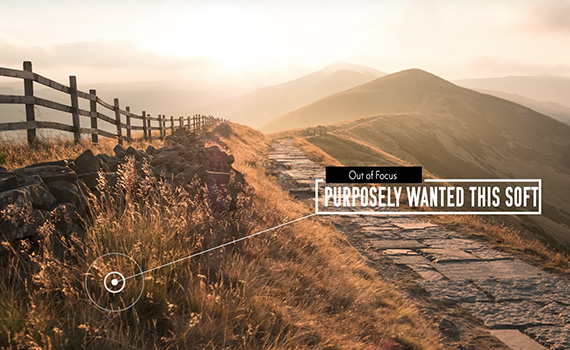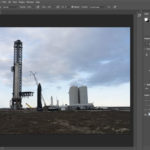Want to get your landscape photos looking as polished as the shots you’re seeing on Instagram? It’s not as easy as you might expect. Luckily, there are a few secrets to getting pin-sharp images that onlookers can’t turn away from:
As Nigel Danson explains in the informative tutorial above, mastering focus is all about finding the right balance of mechanics and aesthetics. That being said, there are mathematical calculations that you can utilize to accurately get everything in focus.
Hyperfocal Distance
No matter what landscape you happen to come across, it’s always possible to find something called a hyperfocal distance. This term refers to the closest distance at which a lens can focus on infinity while simultaneously keeping half the hyperfocal distance acceptably sharp. It can be a bit of a difficult concept for some photographers to grasp initially, but the following visual illustrates it beautifully.

Hyperfocal Distance
Understanding how hyperfocal distance works is one thing, but how exactly do you get your focus just right in the field? There are a few simple ways to get the job done:
- Apps can be incredibly helpful for photographers in need of precise measurements. Tools like Photopills use your camera model and your lens’s focal length to get the numbers perfect.
- For those without a phone or tablet on hand, there’s no need to fret. You can get an approximate hyperfocal length by focusing on something far off in the distance. Once you’ve found a spot to focus on, you just need move the focal plane in. When you reach the point at which the distant object goes out of focus, you’ve reached your hyperfocal distance.
Before you start crunching numbers, keep in mind that in many situations the hyperfocal distance doesn’t provide the photographer’s desired look. Even Danson admits that he rarely uses the technique himself. At the end of the day, photography is a form of art. There are a million equally valid ways of approaching a single subject.
Landscape Focusing Tricks
However, there are a few more tricks that you can use to get the focus exactly how you want it:
- Many newer cameras include a feature known focus peaking. Using an internal edge detection filter, the sharpest points of the photograph are highlighted and viewable on an electronic viewfinder and live LCD preview. This allows you to see exactly where the focal point lies in your photograph.
- If you’re working with an older camera without focus peaking, you can use the LCD zoom to check that the foreground and background are exactly as sharp or soft as you’d like. If anything is off, you can then adjust as needed.
Danson delves deeper into some tips, tricks, and examples that can be helpful in working with your camera to cultivate the style that fits you. But, so long as you have the basics down, it becomes possible to bring your vision to life – no matter where you are or what you encounter.
“Try a different focal lengths. Try different apertures. Work out where defraction sets in for your particular camera setup. And I guarantee it’ll make such a big difference to your photography.”
Like This Article?
Don't Miss The Next One!
Join over 100,000 photographers of all experience levels who receive our free photography tips and articles to stay current:









Leave a Reply